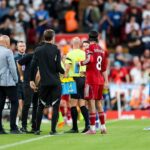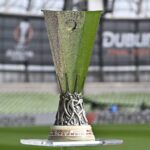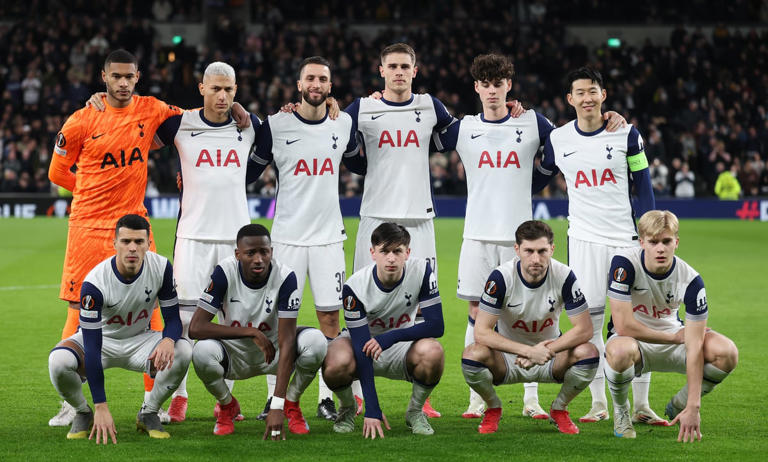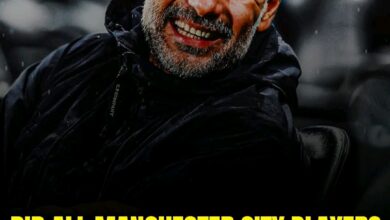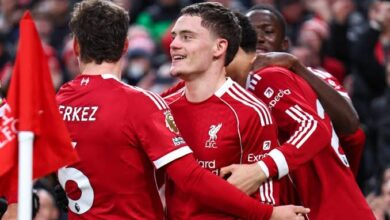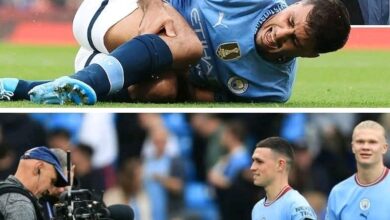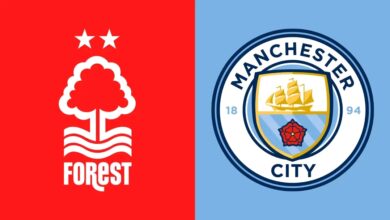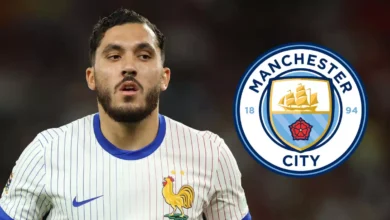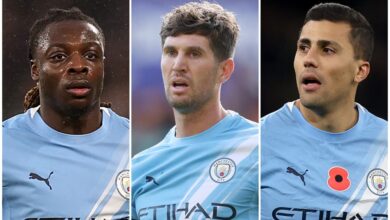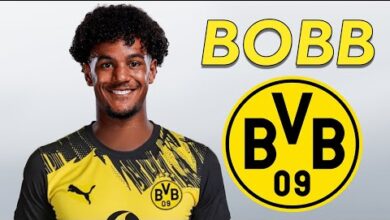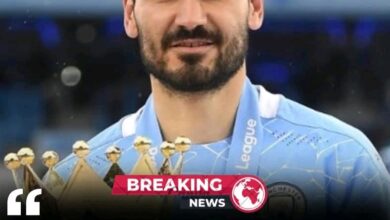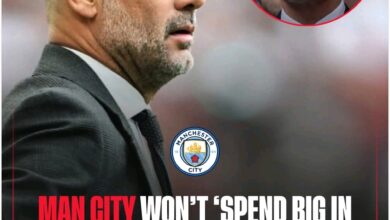In the aftermath of Ange’s departure, Tottenham appoints Edin Terzic as the new head coach. Some fans, initially skeptical, gradually come around, drawn in by the media’s portrayal of Terzic as a pragmatic, results-oriented manager. He instills a more pragmatic approach, emphasizing defensive solidity and counter-attacking football

In the aftermath of Ange’s departure, Tottenham appoints Edin Terzic as the new head coach. Some fans, initially skeptical, gradually come around, drawn in by the media’s portrayal of Terzic as a pragmatic, results-oriented manager. He instills a more pragmatic approach, emphasizing defensive solidity and counter-attacking football.
The immediate results are encouraging. Spurs climb the table, securing a series of “gritty” victories against lesser opponents. Terzic earns plaudits for his pragmatic approach, even if his football lacks the exhilarating, free-flowing style that characterized Ange’s tenure. He guides the team to the semi-finals of both the FA Cup and the Europa League, further solidifying his position.
However, the cracks soon begin to appear. Despite the initial upturn in form, Spurs fail to consistently challenge the top teams. They struggle to break down deep-lying defenses, and their attacking play often lacks creativity and spark. The league finish is underwhelming, with Spurs settling for a mid-table position.
The following summer, a pivotal moment arrives. Manchester City, seeking to revitalize their squad after a disappointing season, identify Dejan Kulusevski as the ideal successor to Kevin De Bruyne. They table an irresistible offer, and Kulusevski, disillusioned by the lack of ambition under Terzic, reluctantly agrees to join the reigning champions. In a somewhat desperate attempt to recoup some of the lost value, Spurs reluctantly accept a part-exchange deal involving Jack Grealish.
Further upheaval follows. Real Madrid come calling for Micky Van de Ven, and Spurs, lacking the financial clout to compete, reluctantly sanction his departure. Marc Guehi arrives from Crystal Palace as a replacement, but the team struggles to adapt to the new defensive partnership.
By March 2026, the writing is on the wall for Terzic. Spurs are out of the cups, languishing in mid-table, and facing a bleak future without European football. Daniel Levy, ever the pragmatist, once again presses the red button. Terzic is dismissed, and the club embarks on a new search for a manager, with Fabian Hurzeler and Kieran McKenna emerging as early contenders.
The initial period remains challenging. Injuries take their toll, and the team experiences some inevitable setbacks. However, Postecoglou remains steadfast in his belief in his philosophy. He encourages his players to remain patient, to trust the process, and to continue to play with the same attacking intent.
Gradually, the team begins to gel. The players, inspired by their manager’s unwavering belief, start to express themselves on the pitch. The attacking football returns, mesmerizing fans with its fluidity and creativity.
While the league position may not be spectacular in the short term, the team consistently performs above expectations in cup competitions. The fans, initially skeptical, are won over by the exciting brand of football and the palpable sense of optimism that permeates the club.
Finally, in a dramatic cup final, Tottenham, playing with breathtaking attacking flair, overcome a formidable opponent to secure their first major trophy in years. The celebrations are joyous, and the future of the club looks bright.
Ange’s influence extends beyond the playing field. He attracts talented young players who are drawn to his exciting style of football. The club’s academy, once a source of frustration, begins to flourish, producing a steady stream of promising young talents.
Tottenham, under Ange’s guidance, gradually climbs the Premier League table, challenging for top honors and re-establishing themselves as a major force in English football.
This “Sliding Doors” scenario highlights the potential ramifications of Tottenham’s decision regarding Ange Postecoglou. The path chosen will undoubtedly shape the club’s future, determining whether they will be a force to be reckoned with or continue to languish in mediocrity.


